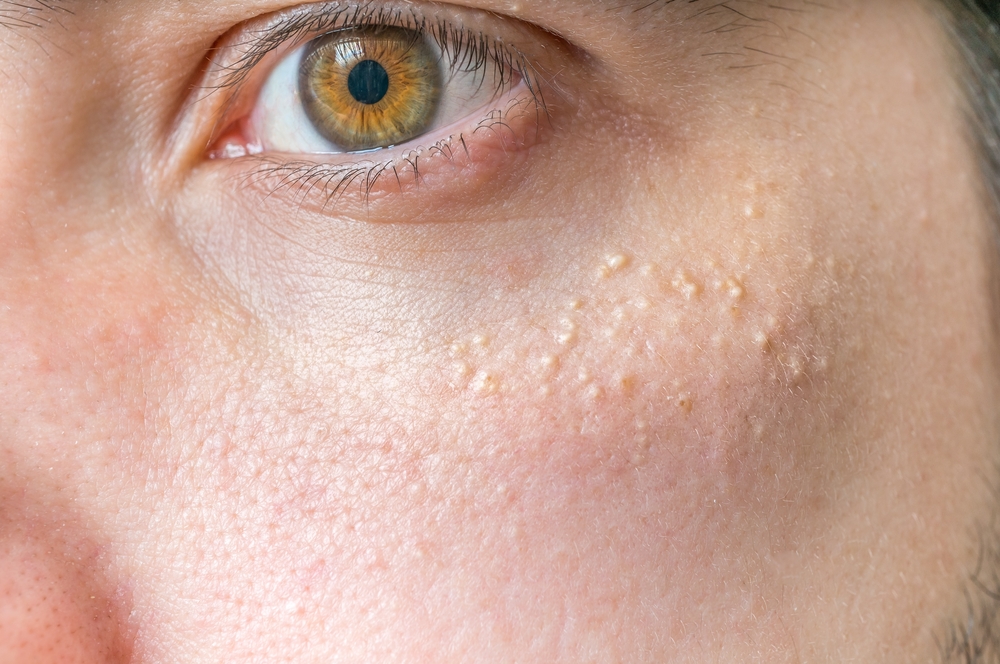Contents:
- Medical Video: Circumcised vs. Uncircumcised - Which Is Better?
- Benefits of circumcision to protect men from HIV transmission
- How can HIV spread through the penis foreskin?
- Circumcised or not, still use condoms
Medical Video: Circumcised vs. Uncircumcised - Which Is Better?
Circumcision is usually not medically mandatory, but can be done for a variety of reasons - from cultural traditions, religious beliefs, to maintaining personal hygiene. Interestingly, several countries such as Africa also encouraged adult circumcision as an HIV prevention program.
What are the facts behind the benefits of circumcision? Is it true that circumcision can prevent HIV transmission in adult men?
Benefits of circumcision to protect men from HIV transmission
Circumcision is the surgical procedure for removing the foreskin of the penis, prepuce eyebrows. There are three medical evidence that circumcision can reduce a man's risk of HIV by 60 percent.
The same thing was echoed by the Institute for Disease Control and Prevention in the United States, CDC. The CDC found that medically, in addition to preventing HIV transmission, the benefits of circumcision also help reduce the risk of other venereal diseases that can be transmitted through unprotected sex.
The procedure of circumcision is also reported to reduce the risk of men contracting genital herpes and HPV infection, which is believed to be a risk factor for penile cancer. In fact, circumcision during childhood is known to provide protection from penile cancer, which only occurs in the skin of the foreskin.
However, circumcision has not been shown to reduce the risk of HIV infection acquired through oral or anal sexand reduce the risk of HIV transmission to female partners.
How can HIV spread through the penis foreskin?
Having foreskin is the number one risk factor for HIV infection in heterosexual men. Men who are not circumcised are at risk of being infected with HIV to 2-8 times higher than men who have been circumcised.
The HIV virus itself can spread through penetration of unprotected sex. When penetration occurs without a condom (the penis enters the vagina or penis into the anus), there will be direct friction between the skin of the penis and the wall of the vagina (or anus). This friction is prone to causing abrasions.
This wound can be an entry point for disease-causing viruses and bacteria, which come from the semen or vaginal fluids of your sex partner who are infected by the disease.
Not only that. When a man is not circumcised, water vapor can be trapped between the penis and the foreskin, thus creating an ideal environment for disease-causing pathogens to multiply. Moreover, there are a number of other problems related to the skin of the foreskin that are not circumcised, such as being difficult to pull back or even jam / doormat, can also cause injury while trapping viruses and bacteria around it.
Men who are not circumcised are also more likely to transmit every infection they have, including yeast infections, urinary tract infection (UTI)and venereal disease (especially HPV and HIV), for example genital herpes, genital ulcers, chancroid, and syphilis in their sex partners.
Uncircumcised penis can even make a female partner You have a risk of venereal disease up to five times higher, including genital herpes, trichomonas vaginalis, bacterial vaginosis, Sexually transmitted HPV (which causes cervical cancer), and possibly chlamydia, than women who have sex with men who have been circumcised.
Circumcised or not, still use condoms
Circumcised or not is a personal choice of each man. Both types of penis can function equally in circumcised and uncircumcised men. In fact, penis problems like impotence, premature ejaculation, even if the transmission of venereal disease can occur both in men who are circumcised or not - depending on the risk factors that you have.
Therefore, it is important to understand that circumcision is not a guarantee protection method that frees you from HIV and other sexually transmitted diseases, especially as a substitute for condoms. Wearing condoms it is still the best and most effective way to protect yourself from HIV and venereal disease if you are sexually active.












